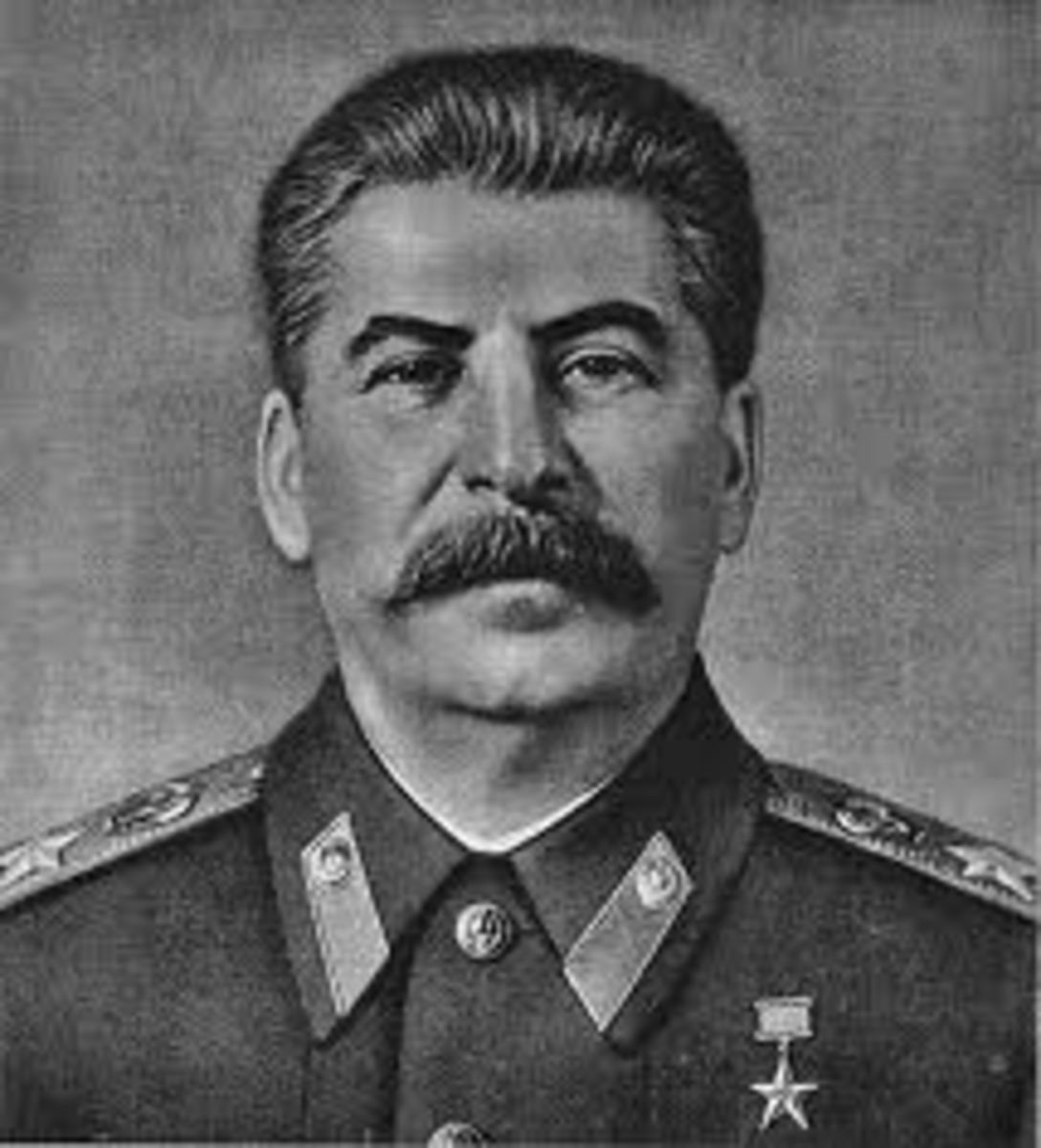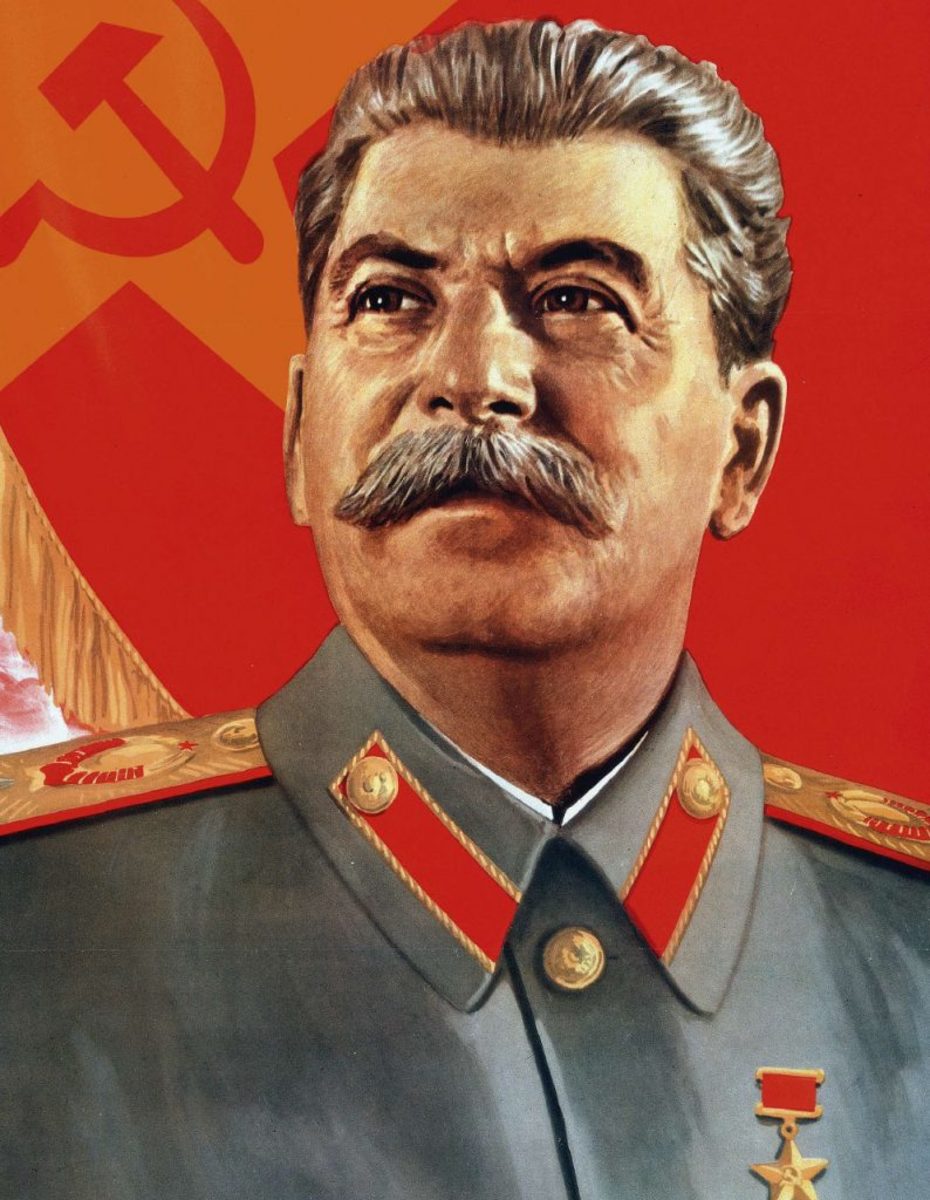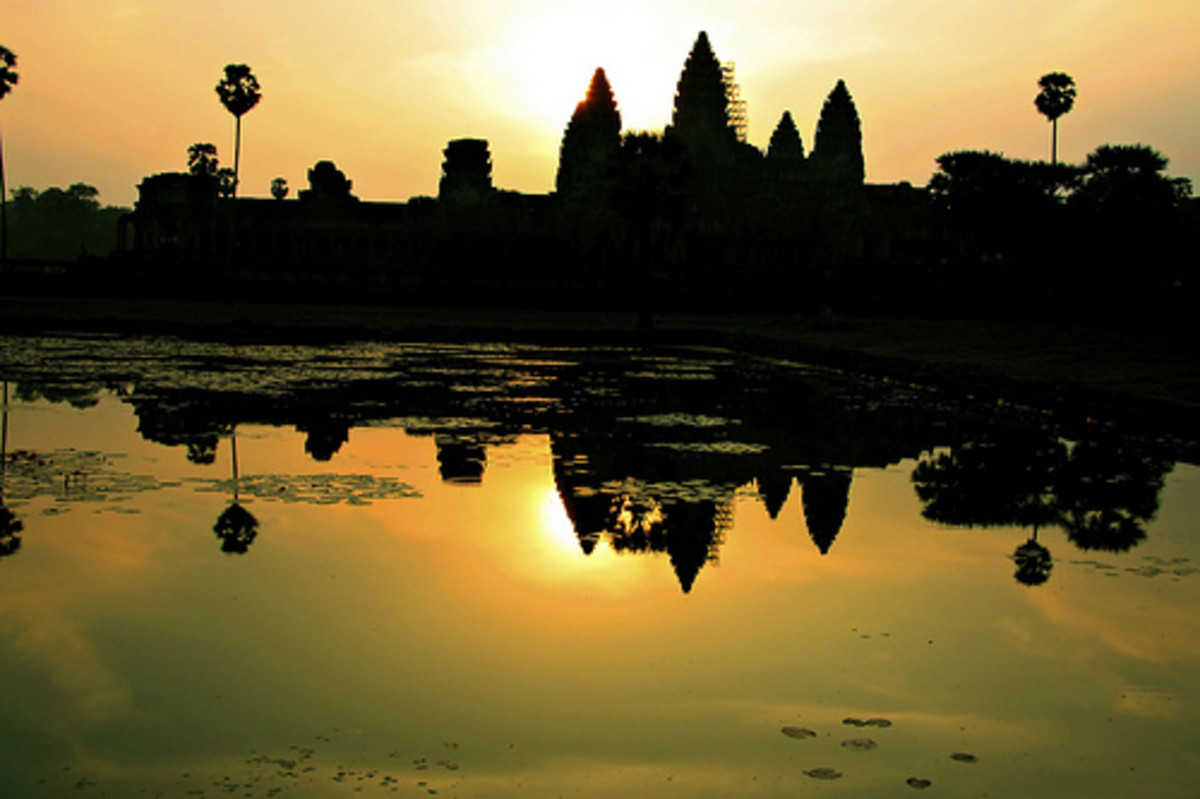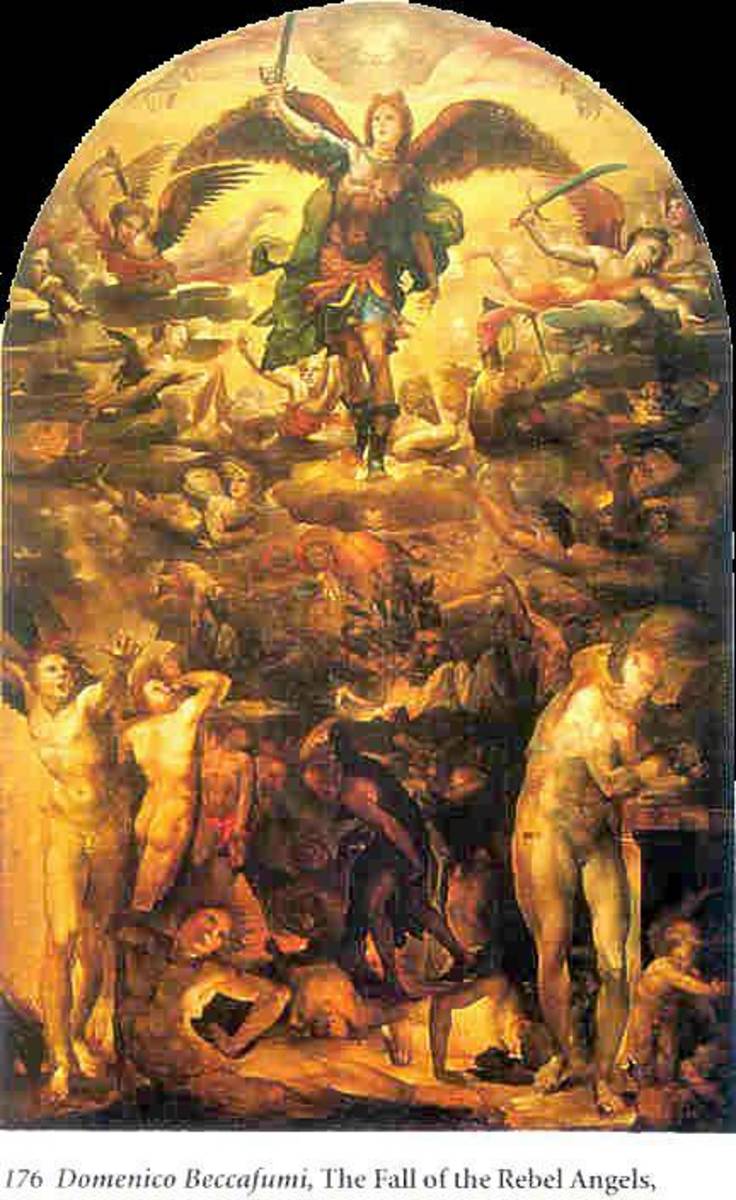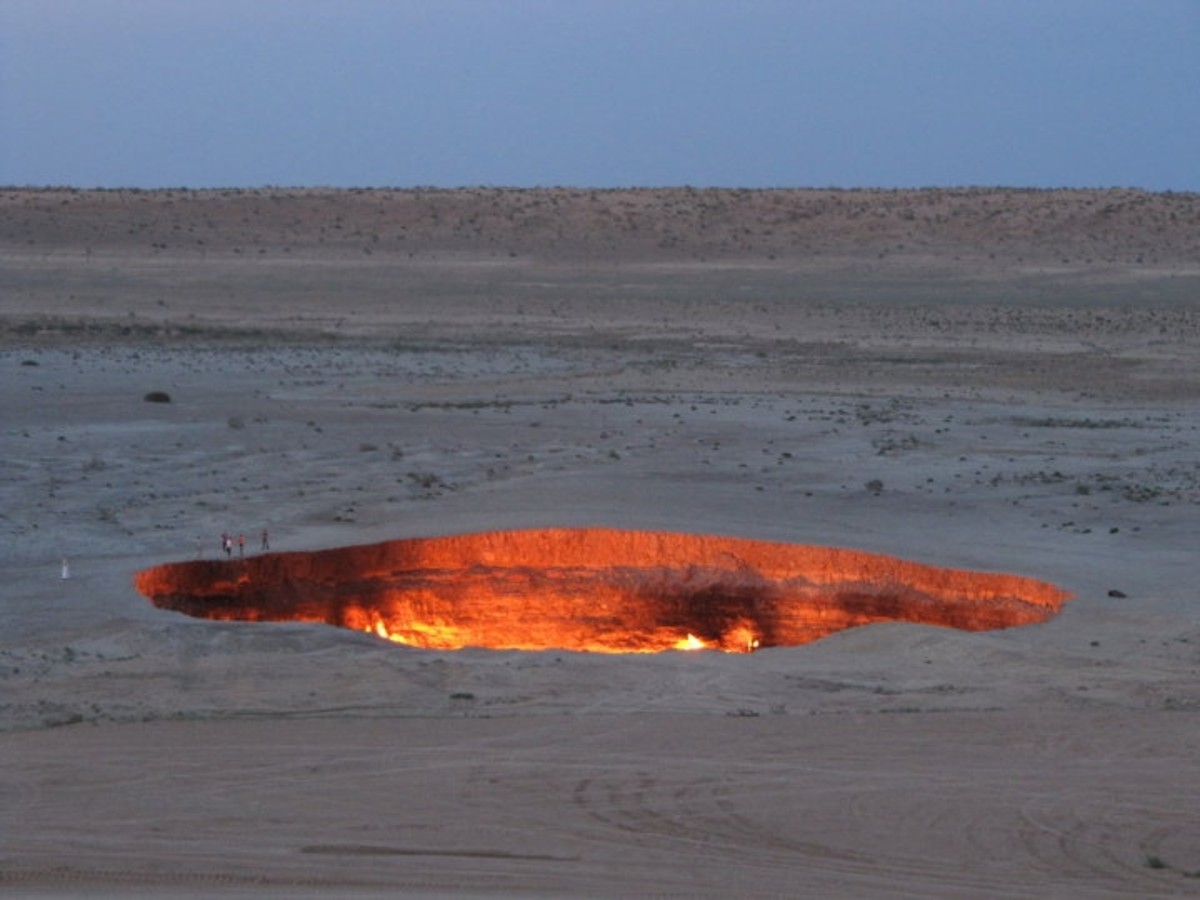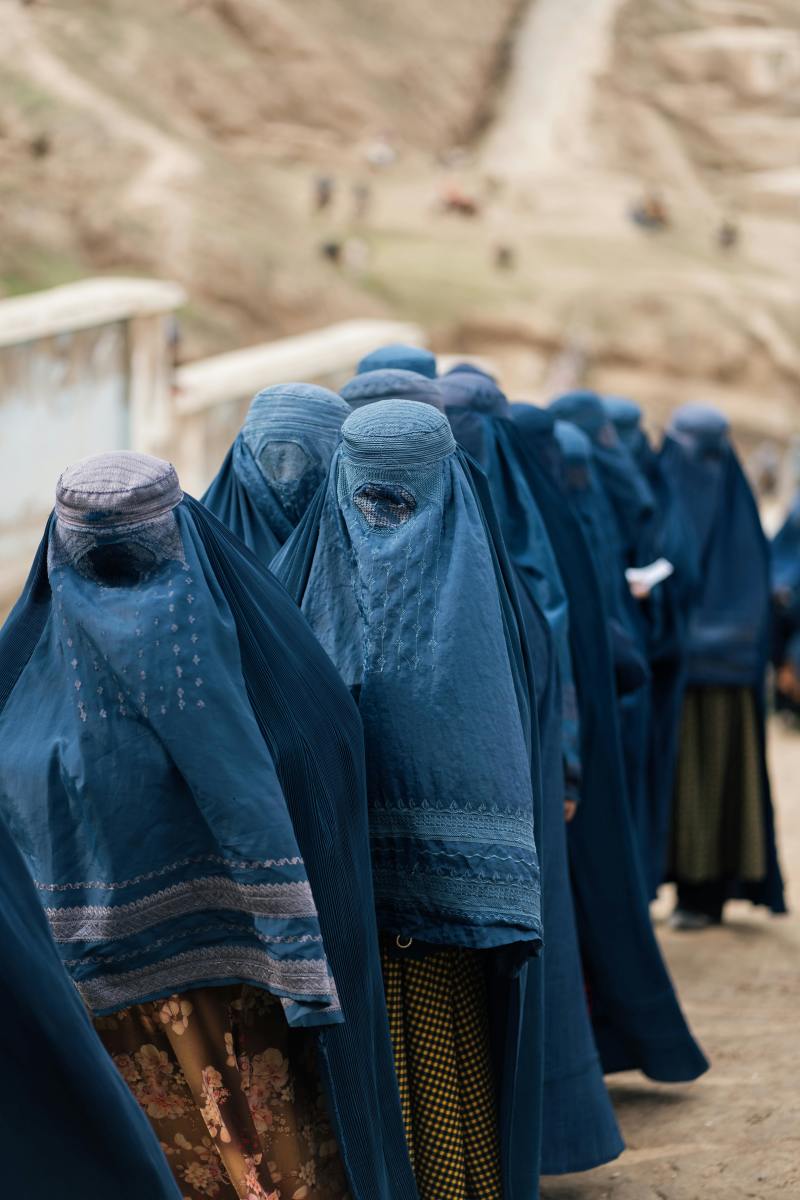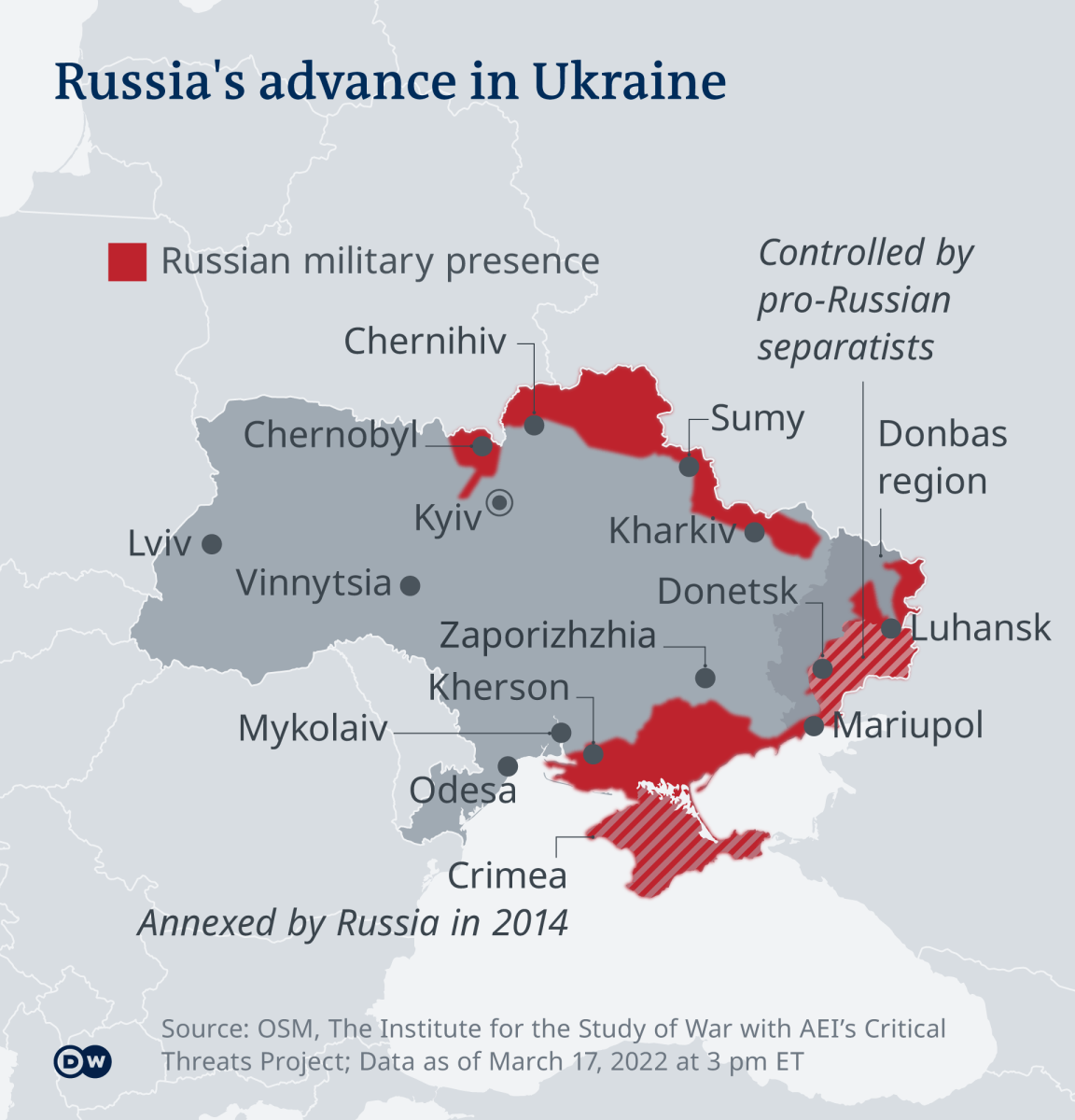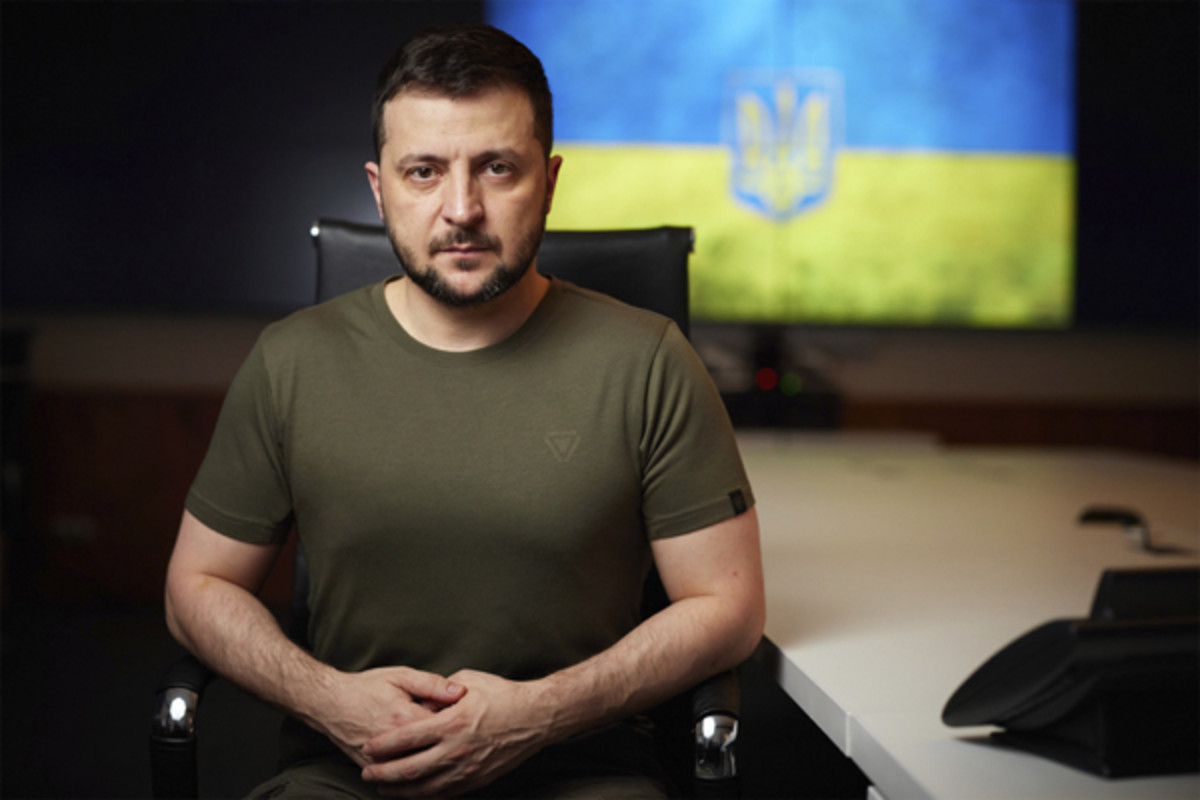An Interview With Josef Stalin in Hell Part Two: Culture Wars
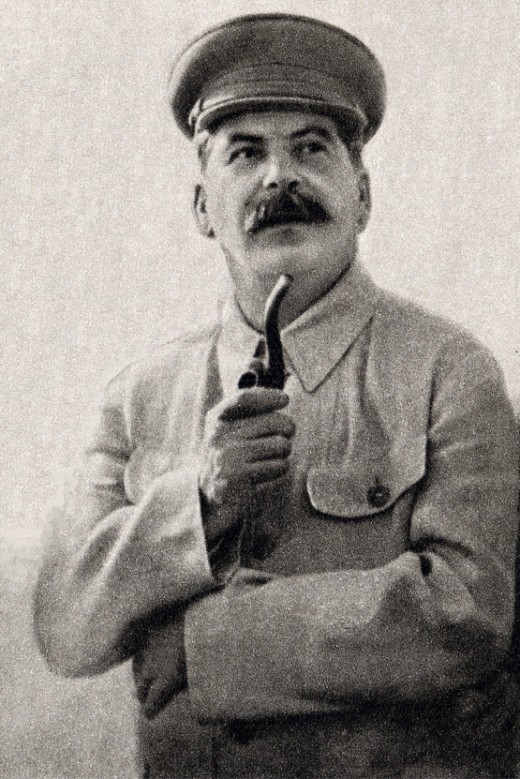
Sometimes it gets boring here in this outreach post of the Creator Universe. This is where recalcitrants like me get sent after we leave our physical body and transmute into our new form. You’d figure that once we die, we disappear into nothingness and are left alone, finally to be relegated to eternal sleep. But no. That’s not quite the way it really is. Your essence continues to exist. Of course, with billions upon billions of former humans who at one time had physical bodies — now transmuted into some sentient spirit form — there have to be places where they can go and do something productive. Anything. They can’t just float around saying “boooh.” Thus, the Creator Universe enables these spirits to create a more idyllic world than the one they left behind. Basically, an Underworld or Netherworld, if you will. These are terms originally meaning the realm of the dead; the supernatural abode of the deceased, or the lower world, as in Greek mythology’s Hades. In reality, and to my original surprise, this spirit world is a lot more organized than the nebulous idea of some floating spirit doing nothing for eternity.
When people make their final transformation into this eighth dimension, they are placed in different areas of the Universe where they are allowed to pursue their dreams and desires. They are only limited by their past foibles, failures, and shortcomings. However, even desultory souls are allowed to purge themselves of their past and cleanse their essence as a way to eventually become one with the Creator Universe. In the case of despots, dictators, and murderers, they are placed into an isolation sphere. This is not done as a way to punish the transgressor, but rather as a way of protecting the rest of the Universe. Obviously, these are spirits corrupted from the onset of their creation and considered not to be redeemable.
In my case, since I was a journalist in my former physical-world life — and my worst transgression was succumbing to the desires of the flesh — my job here in purgatory is to interview and write articles about those spirits who reside in the isolation sphere — Hell, in other words.
In recent centuries, I have managed to garner favor with the celestial council, especially with Ms. Petunia Baldrian, the conclave’s expiatory director. She has put in a few good words for me, which has helped me to upgrade my prison cell to a nice office. I was even allowed to have a cat as an emotional support companion. Because she approved of my progress, she has continued to give me interesting assignments. During this time, I have been dispatched to the isolation sphere several times, where I have had the opportunity to meet and interview some of the most despised and feared despots, dictators, and mass murderers ever to call Earth their home. During these trips, I have used my journalistic skills to extract confessions and admissions of guilt from many sons of perdition, such as Mao Zedong, Jeffrey Dahmer, Fidel Castro, Ted Bundy, and Joseph Stalin.

Recently, I was given another assignment to visit in Hell one of history’s most despised and evil characters, the great Russian dictator and caudillo, Josef Stalin. The assignment came through the inter-celestial messaging network, and it stated my trip was to take place immediately upon my approval. The reason for the journey was to conduct a follow-up interview with the great dictator to probe the notion that despots often use culture wars as a means of holding on to power. This was especially true of Josef Stalin, who maliciously persecuted cultural groups as well as poets, musicians, actors, artists, and authors who did not conform to socialist ideals.
The message from the directorate read:
“Dear Mr. Jackson Swift:
“The directorate would like you to travel to Hell to have a follow-up interview with Josef Stalin. The purpose of this interview is to write an article on how and why he waged war on the thriving cultures that existed in the Soviet Union at the time of his dictatorship. The following are points of reference for you to probe with Mr. Stalin during the time you spend with him.
“Dictators declare cultural war as a way to maintain control. Diverse cultures pose a fundamental threat to their power by encouraging independent thought, dissent, and a national identity not centered on the dictator. Dictators seek to replace a country’s diverse cultural expressions with their own state-sanctioned narrative, thereby consolidating and legitimizing their power.
The reason for their animus toward diversity is that it poses several threats. Most importantly, they encourage dissent. Their creative expression through art, music, and literature can explore and highlight injustices, exposing government corruption and sparking resistance. In authoritarian regimes, where governments control the narrative, artistic works can disrupt and re-frame conversations.
Flourishing cultures allow people to imagine alternatives to the current status quo. This is a direct threat to a dictator’s grip on power, which relies on the population’s acceptance of the existing order.
Art, lifestyles, sexual preferences, racial diversity, and other forms of culture help define a people’s values, history, and collective identity. When this identity is separate from the leader, it creates a source of potential opposition. A dictator’s control is more secure when the national identity is tied directly to his or her personal image.
“Note: Culture wars can be waged by a dictator or by an ideologically aligned political party.
“The way dictators wage culture war is by employing a range of tactics to suppress existing cultures and manipulate them to serve their agendas. They accomplish this by empowering the state censors and suppressing any art, literature, music, or social expression that challenges the regime or its ideology. Cultural institutions, like museums and theaters, are often seized and repurposed to promote nationalist themes approved by the regime. State-controlled media is used to flood the public with propaganda that glorifies the leader and demonizes opponents. This helps create a cult of personality, making the leader appear omnipotent and essential.
“The arts also come under attack by targeting artists who defy the regime. These groups are harassed, blacklisted, or imprisoned. By criminalizing artistic expression, the regime forces dissenters into exile, silence, or jail, sending a clear message to others. Autocrats rewrite history by curating which figures and stories are celebrated and which are erased. This process, which can involve destroying artifacts and replacing them with state-sanctioned versions, controls the nation’s memory.
“To divert attention from economic or political failures, dictators often scapegoat specific cultural, ethnic, or political groups. Propaganda is used to turn the public against these groups, assigning them blame for society’s problems.
“If you are willing to take on this assignment, immediately upon your consent, you will be transported to the gates of the Netherworld for your meeting with Josef Stalin to take place.
Sincerely,
Ms. Petunia Baldrian
Expiatory Director
Purgatory — Alcyoneus Galaxy”
The moment I nodded my head in approval, an intergalactic transportation tunnel appeared and engulfed me into its bowels. As I spun inside its immense dark emptiness, I felt the same motion sickness I had experienced each time I had journeyed in it. My body flattened like a pancake as I traveled through space and time. Although it felt like an eternity, within minutes, the tunnel spat me onto the ground of my intended destination. I immediately recognized the deceivingly sweet, tempting aroma emanating from the miasma that permeated the Netherworld. At the gates of Hell stood the same tall and muscular sentinel who has for eternity guarded the entrance of what so much has been written, agonized in poems, and even euphemized in the past. Suddenly, the realization that I was standing at the gates of Hell became clear. Except that in reality, it is nothing more than an eternal isolation sphere. Its residents are held segregated in perpetuity for causing pain, suffering, and taking lives. Only the Creator Universe, which expands and contracts, builds and destroys, and obliterates through its eternal life cycle, can do what those in Hell have convinced themselves they could. They thought they could play God. Thoughtlessly, carelessly, and recklessly, they destroyed people’s lives.
“Who approaches? Identify yourself.” With flaming eyes, the sentry guarding the gates of Hades demanded.
“I am Jackson Swift. Journalist. I have a purgatory’s dwellers visa, and I am here to interview Josef Stalin.”
Having said that, I showed the satanic figure my inter-celestial passport. Instantly, the demonic sentry said, “Entry granted.” And the gates of Hell swung open.
As I walked into the foyer of Hell, I realized the great Georgian Caudillo was already waiting for me. I immediately recognized his signature tunic suit, known colloquially as the stalinka. His austere wardrobe was a deliberate political choice to project an image of military discipline and make him appear as a modest “man of the people.” His style of dress was in stark contrast to the ostentatious dress style of the Western leaders of his time. Of course, this was all performative. Stalin did not have a modest molecule in his spiritual essence.
“Hello, Comrade Joseph Vissarionovich Stalin. It is a pleasure to see you again. I am Jackson Swift, the purgatory dweller who interviewed you a few years ago. Do you recall our meeting?”
This was only a formality on my part, as I was sure he remembered me. Residents of the Netherworld do not often receive visitors.
“Yes, Mr. Jackson Swift, my American friend from purgatory. I remember you well. Why are you here?”
“Comrade Stalin, I am here to conduct a follow-up interview. While we spoke about many aspects of the time you spent as the supreme leader of Russia, we never discussed how and why you pursued a policy of culture war through which you repressed artists, poets, actors, and intellectuals who did not conform to your concept of the “Soviet Man.” You accomplished this through censorship, aggressive propaganda, and persecution.
“Why did you feel it was important to marginalize and send many members of these groups into exile and even prison?”
It was obvious that this purposely direct question was somewhat startling to the great Russian despot. However, he gathered his thoughts immediately and answered.
“Well, Mr. Swift, coming from a multi-cultural society like the United States of America, you must understand that diversity brings on chaos, disorder, confusion, and even mayhem. It is imperative to consolidate absolute power and eliminate dissent to govern effectively. For Russia, the great Motherland, it was vital to force society to serve the Soviet state. While under my brother-in-arms, Vladimir Lenin, a campaign to subjugate Russian culture to submit to the Soviet state began. However, under my stern leadership, we made the culture war campaign more systematic. In fact, our efforts culminated in a wonderful crescendo during what you in the West referred to as the Great Purge.”
“Mr. Stalin, if you permit me, I would like to ask you another direct question. During your time as leader of the Soviet Union, which types of books did you ban?”
“We, the Soviet government, did not ban books, but rather, eliminated harmful publications to protect the Soviet people and the revolution. This was done to ensure a united, productive socialist society. Books are not works of art, in the way that they are viewed in Western countries, but rather they are political tools. Those books that ran contrary to the goals of the Communist Party and promoted counter-revolutionary ideas were deemed destructive and a threat to state security. You have to realize that many books written during my time in power promoted competing ideologies. Some even promoted failed communist theories. For instance, the works of Leon Trotsky, Grigory Zinoviev, and Lev Kamenev were purged from libraries and publishing records. They all lost favor with me.”
“Is it true that the Communist Party’s history was continuously rewritten to downplay or erase the roles of these members of society who were ousted by you and called ‘enemies of the people”? I asked Stalin.
“The history of the Party must reflect the truth — not the version spread by traitors, saboteurs, and enemies of the working class. When individuals betray the revolution, their previous contributions, if any, must be re-evaluated in the light of their treason. Books that glorified our imperial past or promoted monarchist ideals were banned as counter-revolutionary. We also banned books with religious texts. Our state policy was atheist; hence, books promoting religion were restricted. The Bible was not outright banned for private use; however, it was just not available in bookstores. Its public distribution or discussion was prohibited. Additionally, large printings for churches required special permission from the Party.
And of course, foreign books, especially those from Western capitalist nations, were censored and often banned outright to prevent the spread of “imperialist propaganda”. We also banned books deemed to promote fascism, violence, or “bourgeoisie science,” which encompassed various fields such as genetics and cybernetics.”
Stalin took a few small puffs from his lovat-style pipe and seemed to be pensively awaiting my next question. At this point, I asked the great dictator, “The arts came under attack during your leadership. Artists, actors, and authors came under direct attack. You criminalized artistic expression, and dissenters were forced into exile or jailed. Which type of art, in general, was acceptable to you?”
After a few seconds, Stalin said, “Art, like any tool of society, must serve the people. Under my leadership, we did not attack the arts — we defended them from decadence, individualism, and bourgeois influence. The correct form of art is Socialist Realism — art that glorifies the working class, the collective spirit, and the triumph of socialism. We did not criminalize artistic expression — we criminalized sabotage, anti-Soviet propaganda, and attempts to undermine the unity of the people. Artists who stood with the people and worked to build a new, just society were celebrated. But those who used their position to spread pessimism, nihilism, or counter-revolutionary ideas could not be allowed to poison the minds of the masses. Every artist had a responsibility to the people, to the revolution, and to the future of socialism.”
“Thank you for your answer, Comrade. Regarding stage productions such as ballet, operas, and plays, you censored them to conform to the state-mandated style of Socialist Realism. The censorship was a core component of your control over Soviet society, intended to glorify communism and ultimately your own image. Artists who failed to comply faced severe consequences, including imprisonment, execution, and professional ruin. I am particularly interested in understanding what it was about Socialist Realism that you felt was the art genre that should supersede all other styles?”
“You must understand, art is not created for its own sake. It is a weapon. Bourgeois art — whether abstract, decadent, or individualist — served the interests of the exploiting classes, celebrating confusion, pessimism, and selfishness. Socialist Realism, on the other hand, was not merely a style but a method. It had to supersede all others because it expressed the truth of our age: the building of socialism, the triumph of the working class, the unshakable optimism of a society moving toward communism.
The artist, like the worker or the soldier, has a duty to the state and the people. Art must inspire, must educate, must strengthen faith in the collective struggle. What use is art that confuses the people or glorifies despair? None. Socialist Realism disciplined culture, gave it direction, and ensured that the energy of creativity served progress instead of chaos. That is why it had to dominate.”
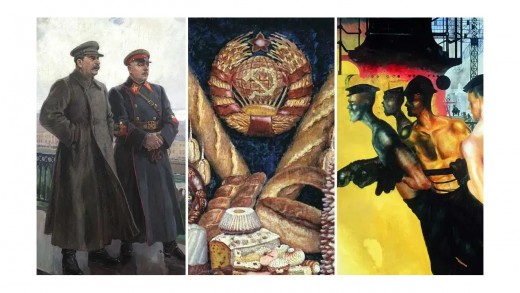
“Well, Comrade Stalin, we have reached the end of our interview. But I do have one last question for you. Which cultural group did you feel needed to be suppressed the most?” Stalin seemed to be relieved we had reached the end of our interview and immediately answered.
“I did not suppress cultural groups. I suppressed enemies of socialism, no matter where they were found. The Soviet Union was a family of nations, and only those who tried to divide it, to serve foreign powers, or sabotage our progress, faced consequences. We could not allow nationalism, sectarianism, or bourgeois elements to weaken the unity of our people.”
“Thank you very much, Comrade Stalin, for answering my questions. I hope you allow me to return and speak with you further, in case there are some follow-up questions I would need to pose to you.”
“It was a pleasure to see you again, Mr. Swift. You are welcome back any time. Let’s face it — I have all the time in the Universe.”

